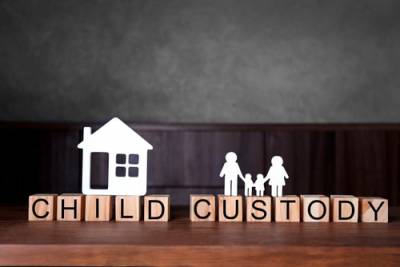Most Common Reasons for Failing to Pay Child Support and Steps to Take if Payments Are Not Received
 Child support plays a crucial role in ensuring the well-being and upbringing of children following a divorce or separation. Unfortunately, some individuals fail to fulfill their child support responsibilities despite legal obligations. Today, we will delve into the most common reasons for non-payment and provide practical guidance for those facing difficulties receiving child support payments. If you are owed child support and are not receiving it, contact a family law attorney immediately to ensure your child’s interests, as well as yours, can stay protected.
Child support plays a crucial role in ensuring the well-being and upbringing of children following a divorce or separation. Unfortunately, some individuals fail to fulfill their child support responsibilities despite legal obligations. Today, we will delve into the most common reasons for non-payment and provide practical guidance for those facing difficulties receiving child support payments. If you are owed child support and are not receiving it, contact a family law attorney immediately to ensure your child’s interests, as well as yours, can stay protected.
Most Common Reasons for Non-Payment
-
Financial hardship – One of the most common reasons for non-payment is financial hardship. Sudden job loss, medical emergencies, or other unforeseen circumstances can significantly impact a parent’s ability to pay child support. It is crucial to understand that even genuine financial difficulties may not absolve individuals of their child support obligations, as court orders usually require prompt notification and legal remedies for modification.
-
Lack of accountability – In some cases, failure to pay child support arises from a lack of accountability. Some parents intentionally avoid making payments due to personal disputes, resentment, or disagreements regarding custody arrangements. Such actions are unjustifiable and may carry legal consequences.
-
Lack of information – Unawareness or inaccurate information about child support obligations may lead to non-payment. It is essential for both parties involved to thoroughly understand court orders, payment schedules, and how to accurately calculate child support to avoid misunderstandings.
Steps to Take if Child Support Payments Are Not Received
-
Communication and documentation – Open communication is the first step to addressing non-payment issues. Reach out to the non-paying parent to inquire about any problems or concerns. Maintain a record of all communication, including dates and times, as it may serve as evidence in legal proceedings.
-
Inform the child support agency – If open communication does not yield results, contact your local child support agency, or appropriate government entity responsible for enforcing child support orders. Provide them with all necessary information, including court orders, payment history, and any documentation illustrating non-payment.
-
Seek legal assistance – If child support non-payment issues persist, it is advisable to consult with a family law attorney. They will guide you through the legal process, inform you of your rights, and explore further legal action to recover overdue payments.
Contact a Will County Family Lawyer
For assistance in pursuing the child support payments that are rightfully owed to you and your child, contact the distinguished Joliet family law attorneys at Reeder & Brown, P.C.. Call 815-885-5980 for a free consultation.
Source:
https://hfs.illinois.gov/childsupport/formsbrochures/hfs1759.html





